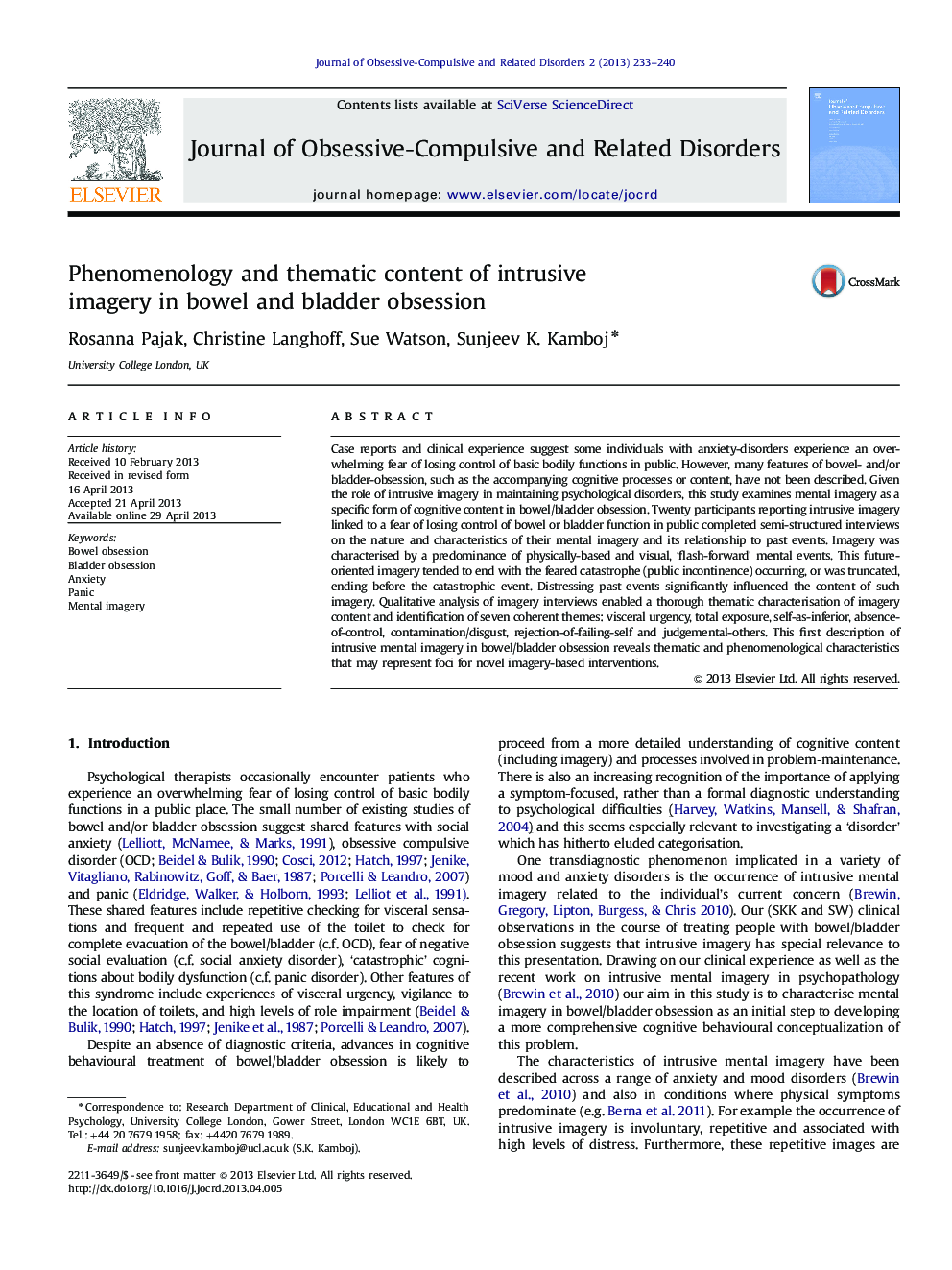| Article ID | Journal | Published Year | Pages | File Type |
|---|---|---|---|---|
| 912352 | Journal of Obsessive-Compulsive and Related Disorders | 2013 | 8 Pages |
•People with anxiety disorders often experience recurrent distressing mental imagery.•Participants with bowel/bladder obsession also experienced such intrusive imagery.•This tended to be future-oriented, with strong visual and physiological elements.•Distressing past events influenced the content of mental imagery.•Thematic analysis of imagery content yielded seven relevant themes.
Case reports and clinical experience suggest some individuals with anxiety-disorders experience an overwhelming fear of losing control of basic bodily functions in public. However, many features of bowel- and/or bladder-obsession, such as the accompanying cognitive processes or content, have not been described. Given the role of intrusive imagery in maintaining psychological disorders, this study examines mental imagery as a specific form of cognitive content in bowel/bladder obsession. Twenty participants reporting intrusive imagery linked to a fear of losing control of bowel or bladder function in public completed semi-structured interviews on the nature and characteristics of their mental imagery and its relationship to past events. Imagery was characterised by a predominance of physically-based and visual, ‘flash-forward’ mental events. This future-oriented imagery tended to end with the feared catastrophe (public incontinence) occurring, or was truncated, ending before the catastrophic event. Distressing past events significantly influenced the content of such imagery. Qualitative analysis of imagery interviews enabled a thorough thematic characterisation of imagery content and identification of seven coherent themes: visceral urgency, total exposure, self-as-inferior, absence-of-control, contamination/disgust, rejection-of-failing-self and judgemental-others. This first description of intrusive mental imagery in bowel/bladder obsession reveals thematic and phenomenological characteristics that may represent foci for novel imagery-based interventions.
